This is my first ever Favourite Books of the Year List! I am so excited because I will get to look back on my year through my reading list.
On the list, I have my typical pick from my favourite genre of economy and philosophy. But also this year I have expanded my reading interest into the realm of literature and fiction. A completely new territory for me.
Before 2016, I never picked up a literature book. I thought of fiction as a waste of time. But an encounter to a new friend this year changed my perspective. He gave me Americanah, a book written by Chimamanda Ngozie Adichi. The book describes the experience of life and love of a Nigerian couple in and out of the country. Through this book I learned that despite my complete ignorance of Lagos, Nigeria, the struggle and ambitions of the characters sounds eerily similar to mine. So it finally hit me that books can teach us not only knowledge, but also empathy and understanding. Since it turns out despite all, we humans really do share the many complex facets of the human experience.
You can say that I am now completely hooked on literary works, and I am planning on paying back the years of my ignorance by reading as much of the most important literary works out there, starting from 2016. So, this year in a nutshell will be forever known to me as the year I found literature.
So as you will see the books listed here are not books that were actually published this year, its just books I have chosen out of the 34 books I happened to read this year. For the full list of the books I read this year go to this link. So we shall begin.
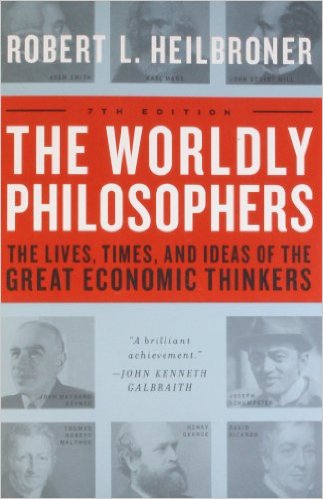
The Worldly Philosophers
by Robert L. Heilbroner (1953)
Genre: Economics, Philosophy, History, Nonfiction, Biography
“You cannot get them to talk of politics so long as they are well employed”
This book is a great introduction to economics. Heilbrones gave a simple introduction to some of the most complex economic concepts, Yet he was also able to put many of it brilliantly into its historical context. He also somehow managed to expose the life and characters of some of the most loved (or hated) economist of all times. He showed us the hard life of Karl Marx, the amazing character of John Maynard Keynes, the eccentricity of Thorstein Veblen and many many more. His humanlike portrayal of some of the greatest thinkers of history shows beautifully how there is no one way to success. Even a die hard introvert, who prefers not to meet people, might still be a person whose theory moved and shook the world. So even if you are not interested in economics, you are well advised to read this because it’s so freaking motivating.

The Bonobo and the Atheist: In Search of Humanism Among the Primates
by Frans de Waal (2013)
Genre: Science, Philosophy, Biology, Nonfiction
“Perhaps it’s just me, but I am wary of any persons whose belief system is the only thing standing between them and repulsive behavior.”
In this book Frans de Waal argues that our humanity is imbedded in our biology. This point of view to me is so damn life changing that I keep thinking about it many months after. The books central argument begs to re-examine our understanding of human nature. The book goes into the life of primates, in which it explained to us how even in chimpanzees and bonobos, so many of our values that we have considered to be uniquely human, is also observed. Frans de Waal has brought us back into the questions of our own morality and humanity, but elevated our never ending philosophical wondering to a new level of understanding of our own nature.
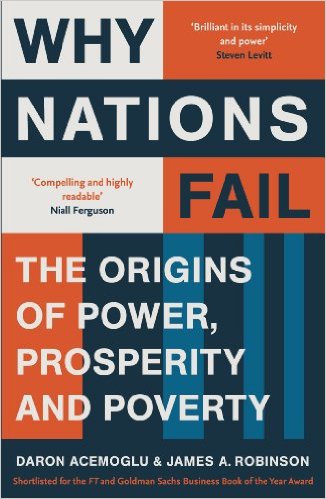
Why Nations Fail
by James A. Robinson and Daron Acemoğlu (2012)
Genre: Economics, History, Nonfiction
“As we will show, poor countries are poor because those who have power make choices that create poverty.”
This is a brilliantly written book, and arguably one of the most ambitious books I have ever read. In this book, James Robinson (a Professor of Economics at Harvard) and Daron Acemoglu (a Professor of Economics at MIT), tries to answer one of the most intriguing questions of all time: Why are some nations poor and other nations rich? They succeeded in giving an argument that is both convincing and simple at the same time. Which just almost never happens for such a profoundly complicated question. They then embarked on explaining their elegant theorem on the origins of power, prosperity and poverty, by applying it to a dizzying array of historical contexts. Although the book is quite a hard one to read, mainly because of all the many details given in its historical pursue of evidence, I believe that the historical contexts on which the writers tried to test their theorem is still important. Through it their central argument becomes more and more convincing, and the study of their ideas more and more pressing for anyone interested in the mechanisms of power and prosperity.
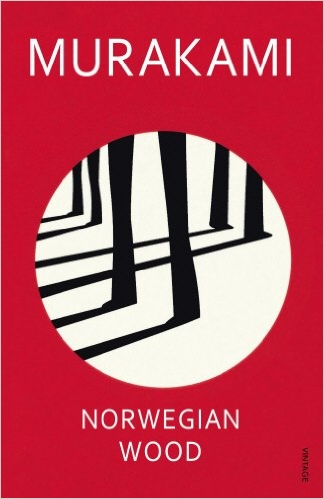
Norwegian Wood
by Haruki Murakami (1987)
Genre: Literature, Fiction
“If you only read the books that everyone else is reading, you can only think what everyone else is thinking.”
I read this book in one sitting, captivated by the subtle emotions almost every page evoked in me. Although the book at first glance seems to be “just a love story”, it really isn’t. Murakami, with his ingenuity, was able to move some deep emotions on this one. Must read for all those who have felt both the loneliness of loss and the cravings of love. Both of which emotion can drive any sane person to insanity.
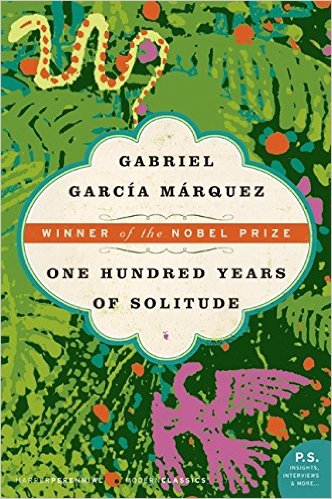
A Hundred Years of Solitude
by Gabriel Garcia Marques (1967)
Genre: Literature, Fiction
“Wherever they might be they always remember that the past was a lie, that memory has no return, that every spring gone by could never be recovered, and that the wildest and most tenacious love was an ephemeral truth in the end.”
I was torn in putting this book down on this list, because I did not enjoy it. This book certainly is not one of those books that puts a smile on your face, or a longing to read more of. But despite all this, when I was reading it, I could not deny that this was one of the best books I’ve read in life. Through the narrative of the Buendia Family, Marques exposed all of humanities best and worst. And through the setting of the growth and decay of its central illusionary city, Macondo, Marques exposed the rise and fall of societies. It was nothing short of a masterpiece, it’s just not enjoyable.
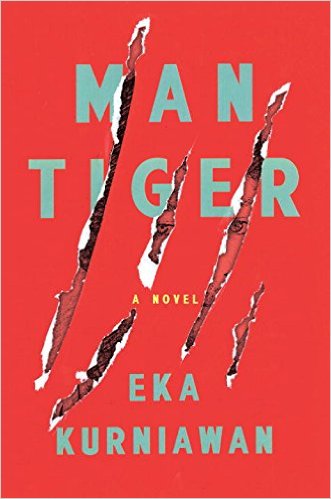
Man Tiger (Lelaki Harimau)
by Eka Kurniawan (2004)
Genre: Literature, Fiction
I read the book at the end of April 2016, and left having so many mixed feelings. The type of discomfort only a good book can evoke.The story evolves around the brutal killing of a man in an unnamed village. Although since the beginning we have known who the killer is, the question throughout the book becomes not about who, but rather of why. It became a circle of storytelling from many different narratives, filling us in only with their own perspectives, until finally we understand fully. To me it is the most breathtaking book I have ever read that deals with poverty and desperation in such a manner, yet still gives us a glimpse of humanity in a way nothing else could. This book is on the list because for the past half year its been my benchmark in understanding almost anything. A book that has opened my horizons.
